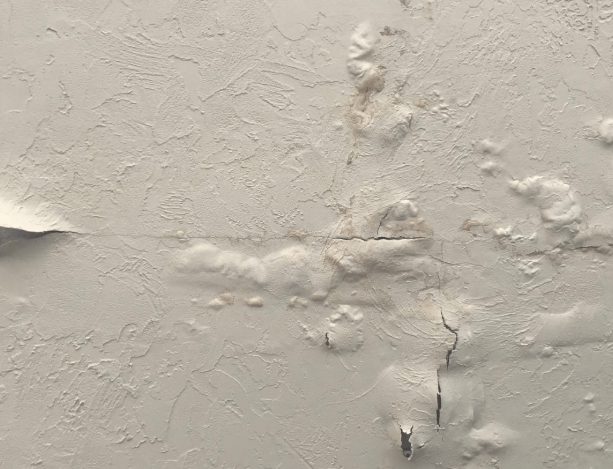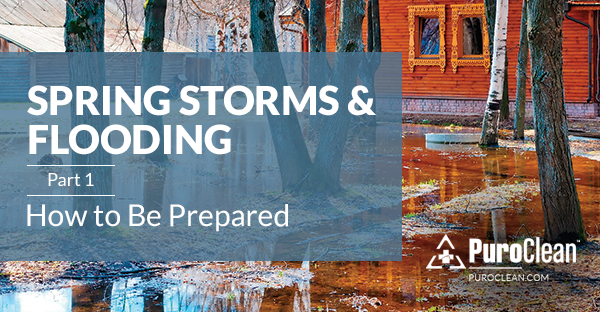Water damage and mold can lead to costly repairs, health issues, and decreased property value.
Routine property inspections are a crucial tool in preventing these problems. They can identify potential issues early, allowing for timely intervention.
This article will discuss the importance of inspections for water damage and mold prevention.
Whether you’re a homeowner, a real estate investor, or a property manager, this guide is for you.
So, let’s dive in and explore how routine property inspections can save you time, money, and stress.
Understanding Water Damage and Mold Risks
Water damage occurs when unwanted moisture infiltrates a property. It can result from leaks, floods, or even condensation. Left unaddressed, it can compromise structural integrity.
Mold thrives in moist environments, spreading rapidly when conditions are right. It can grow within 24 hours of water exposure, making quick detection and action crucial.
The consequences of mold and water damage extend beyond property value. Mold can cause severe health issues, including breathing problems and allergies. Its presence can also degrade indoor air quality.
To protect properties, it’s vital to understand common causes of water damage. These include:
- Plumbing leaks or burst pipes
- Poor roof maintenance leads to leaks
- Improper drainage or gutter systems
- Inadequate insulation, allowing condensation
By understanding these risks, property owners can take proactive measures. Regular maintenance and inspections are key. Awareness and swift action can prevent minor issues from becoming major hazards.
The Role of Routine Property Inspections
Routine property inspections serve as a crucial defense against water damage and mold. Regular checks can detect problems early. Identifying issues before they escalate saves time and money in the long run.
Inspections cover all crucial areas susceptible to water damage, including plumbing systems, roofs, and windows. It’s also important to check foundations and basements for water intrusion signs.
By identifying and addressing issues early, inspections help maintain property value. They form an essential part of a broader risk management strategy. Regular inspections offer peace of mind and contribute to well-being.
Key Components of a Property Inspection for Water and Mold Prevention

A well-structured property inspection aims to identify potential water and mold risks. To achieve this, it must include several key components. A thorough evaluation of these areas is essential for effective prevention.
The plumbing system is the first aspect to inspect. Look for leaks, corrosion, or any signs of wear. Assess pipes for any potential weaknesses.
Roof inspections are crucial as they often reveal water intrusion points. Inspect for missing shingles or damaged flashing. Ensure gutters and downspouts effectively direct water away from the property.
Checking windows and doors is vital to ensure seals are intact. Address gaps immediately to prevent leaks. Inspecting window frames for signs of decay or mold is also important.
Basements and crawl spaces often hide water damage or mold growth. It’s essential to check for moisture or mold presence. Utilize tools like moisture meters for hidden moisture detection.
To maintain consistency, use a structured home inspection checklist. A checklist should include:
- Plumbing and HVAC systems
- Roof, attic, and exterior walls
- Windows, doors, and seals
- Basements, crawl spaces, and foundation
- Ventilation and humidity levels
By following these components in routine property inspections, property owners can significantly reduce water damage and mold risks. It’s not just about addressing existing issues but also about prevention. Proactive checks help preserve property integrity and prevent costly restoration efforts.
The Financial Benefits of Preventing Water Damage and Mold
Preventing water damage and mold is not just about protecting property aesthetics. It’s also a strategic financial decision. Routine property inspections help avoid expensive repairs by catching issues early.
Ignoring problems can make water damage restoration services expensive. Early detection minimizes damage extent, reducing the need for extensive restoration. Emergency water restoration, in particular, can incur high costs if damage is severe.
Regular inspections also safeguard property value. Properties with known water damage or mold history may sell for less. Buyers are wary of potential hidden damages, impacting resale value. By preventing damage, property owners preserve their investments.
Moreover, proactive management may lower insurance premiums or prevent claim disputes. Insurance policies often require evidence of routine maintenance for claims. Thus, routine inspections not only prevent damage but also support smoother insurance processes. In the long run, these inspections represent a cost-effective strategy.
Health Implications of Mold in Properties
Mold in properties poses significant health risks, impacting residents’ well-being. Mold spores can enter the respiratory system, causing various ailments. Common symptoms include coughing, sneezing, and throat irritation. For individuals with allergies or asthma, mold exposure can exacerbate symptoms, leading to more severe health issues.
Prolonged mold exposure is linked to chronic breathing conditions. It can affect anyone, but young children, the elderly, and those with compromised immune systems are particularly vulnerable. In some cases, mold may contribute to developing new sensitivities or allergies, further impacting health.
The health implications extend beyond physical ailments. Mold can reduce indoor air quality, affecting mental health and overall comfort. The presence of mold often leads to a musty odor, creating an uncomfortable living environment. By prioritizing routine inspections, property owners can mitigate mold growth, enhancing health and overall quality of life for occupants.
How to Conduct Effective Property Inspections

Conducting effective property inspections requires a structured approach. Start by creating a detailed plan, focusing on areas prone to water damage. Regular inspections should encompass a variety of elements to ensure thorough evaluation.
Begin with a home inspection checklist. Ensure it includes all vital areas like roofs, basements, and plumbing systems. Remember to inspect for signs of water intrusion such as stains or mold.
Here is a concise checklist for conducting these inspections:
- Check for dampness or leaks in walls and ceilings.
- Inspect plumbing systems for visible leaks.
- Review roofing and gutter systems for damage or blockages.
- Examine windows and doors for proper seals.
- Assess basements and crawl spaces for moisture accumulation.
- Look for signs of mold, such as musty odors.
Document all findings during inspections. This aids in tracking property conditions over time and informs necessary preventive measures. While homeowners can perform basic checks, engaging professionals periodically ensures a comprehensive assessment.
Professional inspectors possess tools like infrared cameras for detecting hidden moisture. Routine property inspections, when conducted effectively, can significantly reduce potential water damage and mold growth, protecting the property’s value and occupants’ health.
When to Engage Professional Inspection Services
Knowing when to engage professional inspection services is crucial for maintaining property integrity. While property owners can do routine checks, complex issues need expert eyes.
Professional inspection services are important during property sales, after severe weather, or when there are signs of water damage.
Experts can spot small issues that untrained people might miss. Their tools and knowledge provide peace of mind, ensuring any water or mold problems are quickly fixed. Engaging professionals at critical times can prevent minor issues from escalating into costly repairs.
The Long-Term Value of Routine Inspections
Routine property inspections are integral to maintaining a property’s condition and value. They play a crucial role in water damage and mold prevention, ensuring a safer and healthier environment for occupants.
By prioritizing regular inspections, property owners can avoid expensive repairs. A proactive approach to property care fosters peace of mind and saves money in the long run. Embracing routine inspections as a standard practice leads to well-maintained properties that retain their value over time. This provides substantial benefits to owners and tenants alike. For expert mold or water restoration services in Riverside-San Bernardino-Ontario, contact PuroClean of Rancho Cucamonga today! Our team will inspect and address all aspects of damage to keep your property safe and give you peace of mind.



